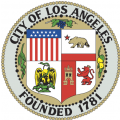For our 2024 rankings, the research team at Nursing Schools Almanac collected data on nearly 3,000 nursing schools and campuses throughout the United States. We evaluated each school on three dimensions:
California
We've organized a comprehensive list of California nursing schools. Below you'll find information on specific nursing programs such as LVN certificates and ADN, BSN, and MSN degrees. You'll also find a profile of nursing education and careers in each major California city.
California nursing programs and careers
City-specific information
What does it take to become a nursing professional in Fresno, California? Registered nurses (RNs) must perform a variety of challenging tasks, from conducting diagnostic tests and analyzing results to establishing effective care plans for the sick or injured. RNs must therefore earn an associate's degree in nursing (ADN), bachelor of science in nursing (BSN), or master of science in nursing (MSN), and they must successfully pass the national licensure exam. Most hospitals and healthcare providers prefer a BSN or MSN degree.
California is home to more than a quarter-million registered nurses (RNs). Some 20,070 live in the East Bay area (Fremont, Hayward, and Oakland). The area is also home to an impressive 7,280 certified nursing assistants (CNAs) and 4,260 licensed vocational nurses (LVNs). While opportunities for nurses are plentiful in Fremont, the field is very competitive. To ensure that their nurses have the skills needed to provide exceptional patient care, the city’s hospitals and healthcare providers require education, experience, and licensure / certification.
With a population of 23,670 registered nurses (RNs) averaging $83,160 per year, 5,170 licensed vocational nurses (LVNs) averaging $48,190 per year, and 8,320 certified nursing assistants (CNAs) averaging $27,670 per year, Chula Vista is one of the nation’s best places to start a career in nursing. While the opportunity for success in the city is promising, nurses must demonstrate the ability to juggle a variety of demanding tasks to land a position at a top hospital or healthcare provider. This can only be accomplished with the right education and training.
While California nursing programs and career opportunities are plentiful, it still takes a lot of work and the right education to obtain a lucrative position as a registered nurse (RN), licensed vocational nurse (LVN), or certified nursing assistant (CNA). RNs must be skilled at performing a variety of challenging tasks from conducting diagnostic tests and analyzing results to establishing effective care plans for the sick or injured.
The state of California is home to the nation’s largest population of registered nurses, licensed vocational nurses, and certified nursing assistants. This means that California nursing programs and career opportunities are plentiful in cities across the state. So what do these professionals do, and how do they prepare for success?
The cost of nursing school depends on a wide variety of factors including the type of school you attend (public vs. private), the type of program you choose (certificate vs. degree program), where you live (state resident vs. non-resident), and whether you commute or live on campus. With this in mind, aspiring nursing professionals can expect to pay anywhere from $1,000 to $20,000+ per semester for tuition fees.
The state of California is home to some of the nation’s most prestigious private schools. Stanford University, California Institute of Technology, and University of Southern California are just a few. Many of the state’s top private schools are also home to some of America’s best nursing schools. Besides an excellent reputation and prominent programs in specialized fields such as nursing, many of these private schools offer more personalized attention than public schools thanks to smaller class sizes.
The state of California is home to the nation's top public university: University of California, Berkeley. Several other public California colleges are among the top 25 in the nation, and many are home to some of America’s best nursing schools. Choosing a public nursing school education in the state offers benefits that go beyond reputation. For starters, public universities in the state (and across the US) cost less.













